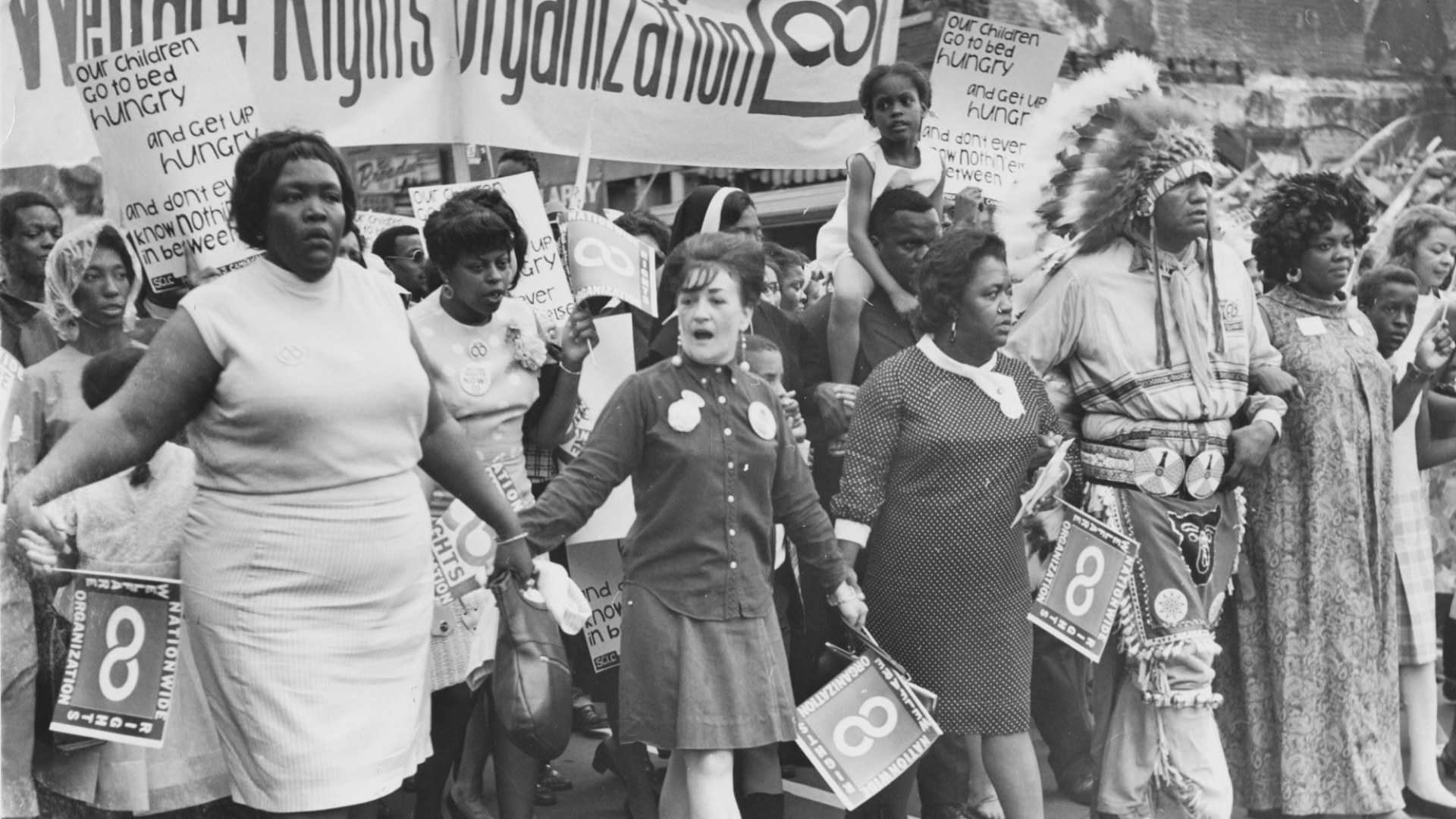
A new exhibit charting the history of Black feminism in Washington, D.C. from the turn of the twentieth century to the present opens on Thursday at the Martin Luther King, Jr. Memorial Library.
“We Who Believe in Freedom: Black Feminist DC” will highlight more than 20 Black woman activists whose work in the District influenced national policy.
More than 20 Black women activists whose work in D.C. influenced national policy will be featured in the “We Who Believe in Freedom: Black Feminist DC” exhibit. The exhibit marks a significant turning point for The National Women’s History Museum (NWHM) since it is the organization’s first physical exhibition following its online launch more than 25 years ago to address the underrepresentation of women in museums and history books.
With interactive online content, K–12 educational programming, and a range of virtual and physical events held all year long, NWHM brings to life the contributions and achievements of women throughout history.
“Our inaugural exhibit explores the stories and voices of Black feminist organizers and theorists whose work changed the trajectory for the lives of millions—work that continues today and is often overlooked in history books,” said Susan D. Whiting, Board Chair, NWHM in a release shared with ESSENCE. “The Martin Luther King Jr. Memorial Library is a beautiful venue to exhibit this important cultural content and, as a public building, ensures that the exhibit is accessible to all,” she added.
The exhibit, curated by historians Dr. Sherie M. Randolph and Dr. Kendra T. Field, focuses on the stories of Black feminist activists and theorists, such as Eleanor Holmes Norton, Loretta Ross, Mary Church Terrell, and Anna Julia Cooper.
“In the decades after general emancipation, D.C. became an incredibly important destination for freedom’s first generation,” said Field, an associate professor of history and Director of the Center for the Study of Race and Democracy at Tufts University.
“Tens of thousands of formerly enslaved women and their daughters migrated to D.C. to chart a freer life. Born during the last years of racial slavery in the U.S., women like Anna Julia Cooper and Mary Church Terrell migrated to D.C. and emerged as leading Black feminist educators, activists, and theorists. They built and organized the local and national Black women’s club movement and laid important groundwork for generations of Black feminists. It has been an honor to contribute to this important exhibit,” she added.
Despite their significant contributions, organizers say many of these women remain largely unknown to the public.







“I hope visitors leave inspired to create a radical, emphatic, mobilizing feminist theory of their own. We need more theory and action inspired by Black feminism,” said Randolph, an associate professor of history at the Georgia Institute of Technology. “Write more poems, write more books, and more manifestos connected to action. That would be a gift to us all.”
On March 31, NWHM will recognize several women at its Women Making History Gala for their significant contributions to women’s advocacy and civil rights, including Uma Thurman, Ashley Graham, Sharon Stone, Congresswoman Eleanor Holmes Norton, and Willie Pearl Mackey King.
“We Who Believe in Freedom: Black Feminist DC” is free to the public and will be on display from March 30, 2023, through September 15, 2024.






